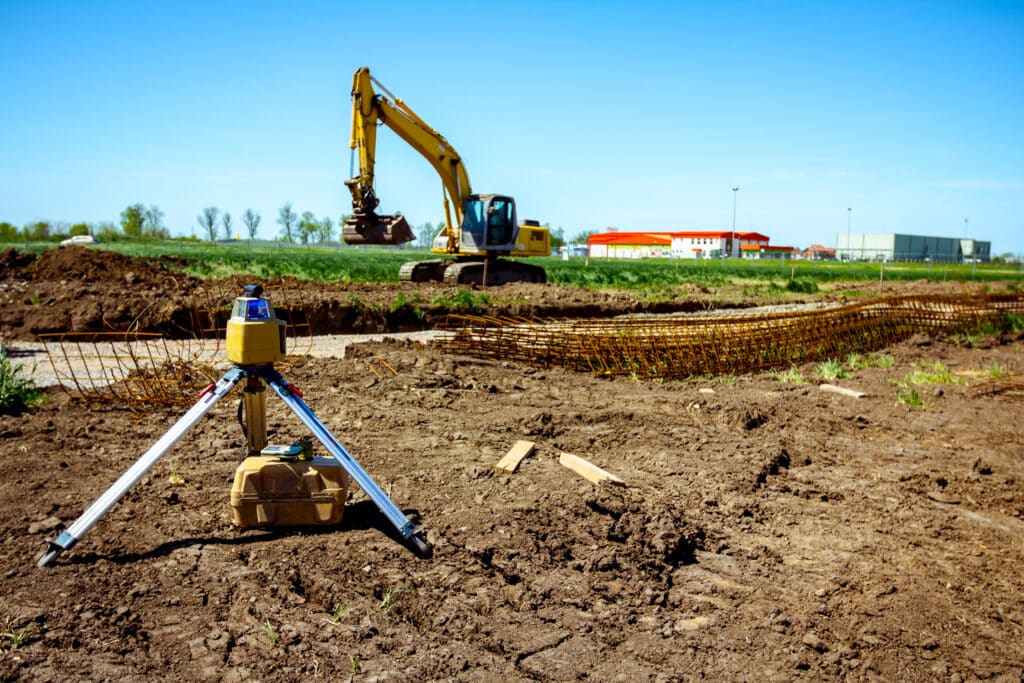

Whether you’re planning a new construction project, tackling a major renovation, or dealing with persistent drainage issues on your property, knowing when to hire a civil engineer can make all the difference. Civil engineers are the unsung heroes behind the scenes, ensuring that projects are not only structurally sound but also efficient, sustainable, and compliant with local regulations. Anyone considering a project that involves land, infrastructure, or structural changes will need to work with a civil engineer. If you’re still not clear on what that entails, read on!
What Is a Civil Engineer?
Civil engineering is a broad and multifaceted field that includes several specialized disciplines. Structural Engineers focus on making sure buildings, bridges, and infrastructure can withstand various loads and forces. Environmental Engineers design systems that protect and improve the environment, while Traffic Engineers plan and design roads and transit systems. Civil Engineers offer a wide range of services, including site planning, feasibility studies, grading and drainage design, stormwater management, permitting, and utility layout. Their expertise ensures that every aspect of a project is thoughtfully planned and executed.
Key Scenarios That Require a Civil Engineer
One of the most common situations where a civil engineer is essential is during new construction. Whether you’re building a residential home, a commercial space, or an industrial facility, a civil engineer will conduct site analysis, design grading and drainage systems, prepare construction documents, and coordinate with local authorities to secure necessary permits.
Major renovations or additions to existing structures also benefit from civil engineering expertise. If you’re making structural changes, a civil engineer ensures the integrity of the building is maintained, that updates comply with current building codes, and that load distribution and foundation support are properly addressed.
Land development projects, such as subdividing property or creating a new neighborhood, require careful planning. Civil engineers handle infrastructure layout, grading, erosion control, and the design of stormwater and wastewater systems to ensure the development is functional and sustainable.
Drainage and flooding issues are another area where civil engineers shine. Persistent water problems can damage property and pose safety risks. Civil engineers design stormwater management systems, retention and detention basins, and solutions to prevent erosion and flooding.
For properties with elevation changes, retaining walls and slope stability are critical. Civil engineers provide stability analysis, design retaining walls, and develop slope reinforcement strategies to prevent landslides and structural failures.
Navigating the complex world of permitting and regulatory compliance is yet another reason to hire a civil engineer. They prepare documentation for permits, ensure designs meet local, state, and federal codes, and coordinate with regulatory agencies to keep your project on track.
Benefits of Hiring a Civil Engineer
Hiring a civil engineer offers numerous benefits. First and foremost is safety and structural integrity—professional analysis ensures your project is built to last. Efficient design and planning can lead to significant cost savings by reducing waste and avoiding expensive mistakes. Legal compliance is another major advantage, helping to prevent fines and delays. Finally, well-designed infrastructure can enhance property value by improving usability and overall appeal.
How to Choose the Right Civil Engineer
When selecting a civil engineer, it’s important to verify their credentials and licensing to ensure they are qualified to work in your state. Look for professionals with relevant experience in projects similar to yours. Strong communication skills are essential for clear collaboration with you and other stakeholders. Reviewing their portfolio and client feedback can also provide valuable insights into their capabilities and reliability.
Common Misconceptions
Many people believe they only need an architect for their project, but architects only design buildings. It’s civil engineers that ensure the land and infrastructure can support those designs and the people intended to frequent those buildings. Another misconception is that contractors can handle everything. While contractors build, engineers design and analyze. Even small projects can face big issues without proper planning, making civil engineering input invaluable.
Hiring a civil engineer isn’t just for large-scale developments—it’s a smart move for any project involving land, structure, or infrastructure. Consulting with a civil engineer early in the planning process can save time, money, and headaches down the road. If you’re unsure whether your project needs one or have any questions regarding your project, reach out to Carroll Engineering at 215-343-5700 for a consultation. (It’s better to ask early than to fix problems later!) Or, learn more on our website. We’d be happy to help you get started on bringing your project to life!


